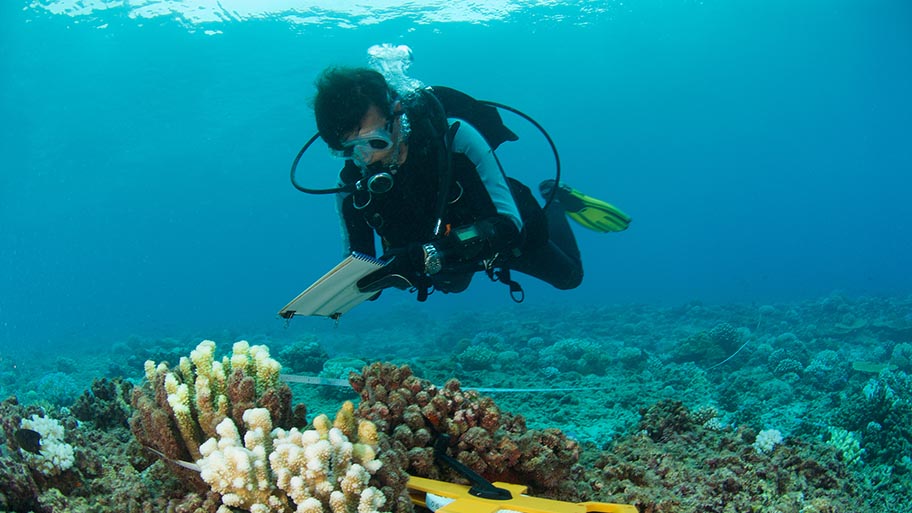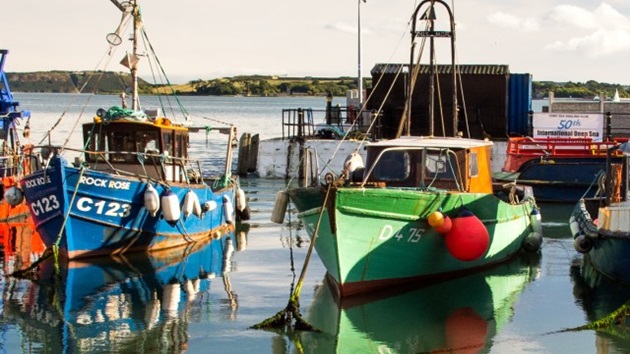The UN’s second assessment of the World’s oceans gives us grounds for optimism, says MSC Director of Fisheries Standards Ernesto Jardim, but there are missed opportunities that need urgent attention in the decade ahead.
 © istock.com/Rainer von Brandis
© istock.com/Rainer von Brandis
1. We know more about the oceans, including what we do not.
The world has made good progress in understanding our oceans in the relatively short time since the first World Ocean Assessment report in 2015.
More data has been collected and more observational studies carried out, helped in part by new technology. This information enables scientists to look at the ocean as a whole and study it as an interconnected set of networks, fostering a more holistic approach.
Nevertheless, with more knowledge also comes an appreciation of everything we don’t yet know. The report lists many areas where more knowledge is needed, such as the effects of pollutants on the marine environment. It also emphasises the importance of global collaboration in making sense of a system too complex for any single group to analyse and understand.
Hopefully, such a clear message will inspire everyone to engage with the UN Decade of Ocean Science and "create improved conditions for sustainable development of the Ocean".
2. Fisheries management is improving but needs more commitment.
The report recognises that fisheries management is improving in many regions, even if a third of global stocks are still overfished. It references scientific findings that indicate 98% of currently overfished stocks could recover by the middle of this century if managed properly. As a scientist, I’m very happy to see that scientific stock assessments and effective fisheries management have been shown to lead to more sustainable outcomes, and are helping even poor performing fisheries to move in the right direction.
MSC fisheries around the world are leading the way in showing what sustainable fishing looks like, working hard to deliver global best practice in stock management and environmental protection. This is helping feed billions of people now while also ensuring there are fish for future generations.
Nevertheless, further commitment is needed to make that a reality for all fish stocks. The report mentions limited support for UN’s Agreement on Port State Measures, which is meant to be a major tool to fight Illegal, Unregulated and Unreported (IUU) fishing. With only 40% of nations signed up, it cannot do what it is supposed to, which is prevent the landing of IUU fish.
The failure of the World Trade Organisation (WTO) to reach agreement on the banning of harmful subsidies also exacerbates the issue of overfishing. From a purely economic perspective, overfishing is estimated to already cost the world US$89 billion each year.
The lack of action on both fronts is a clear sign that nations are not working hard enough to tackle the many complicated trade-offs needed to successfully manage humanity’s use of the ocean.
3. Overcapacity in fishing is still a problem and will get worse if left unchecked.
Having more fishing boats than are needed to catch fish sustainably is a major problem rightly identified by the report. Governments and management agencies cannot deny all citizens with a fishing boat access to fish in their waters, especially after allowing those boats to be built and in some cases subsidising the process. Combined with technological advances that are increasing each boat’s ability to catch fish, policy makers risk sleepwalking into a situation where good fisheries management is hampered by simply having too many boats and too many fishers seeking a livelihood.
4. Sustainable development of the ocean is complex and goes beyond the UN SDGs.
I welcome the wider perspective to the UN Sustainable Development Goals (SDGs) that the report’s integrated approach provides. The sheer number of activities carried out in the ocean is perplexing and highlights the enormous task ahead of us to include those activities within integrated management frameworks.
It was never going to be possible for one goal (SDG14: life under water) to capture the full importance of our oceans in development. It was a shame that, at the inception of the SDGs, only one out of 17 was dedicated to the environment that covers two thirds of our planet.
The report does a great job mapping the place of our ocean in each of the SDGs and showing their interdependencies. This gives the international community much more detail to work with, for example, recognising that underwater noise is a form of pollution.
Our own analysis shows that MSC certified fisheries contribute to at least 34 different targets under 5 different SDG goals.
5. There’s a missing link between science and policy.
Unfortunately, the report seems to give very little attention to the link between science and policy. The current level of disconnection between those producing the evidence and those who need to act on it is frustrating both for policymakers and scientists.
Translating scientific findings into policy actions - or simply providing facts and evidence that support policy making or policy decisions - is vital if society is to create a sustainable framework for how we make use of the ocean. We need to explicitly look at the role of science in “sustainable development of the ocean”, and remove the barriers limiting the uptake of scientific findings. The opportunities missed by not doing this are particularly frustrating to those of us involved in decades-long efforts and investment in ocean science.
But it is not too late to turn things around, and I take comfort in the belief that the authors are aware of these concerns. The start of the UN Decade of Ocean Science is a great opportunity for everyone who cares about the ocean to come up with creative and collaborative ways to secure its future.
Because whether we manage fisheries sustainably for the common good, or allow our oceans’ productivity and biodiversity to be lost forever, is still a choice.
This article is a response to the UN’s Summary of the second World Ocean Assessment published on 20 November 2020.


